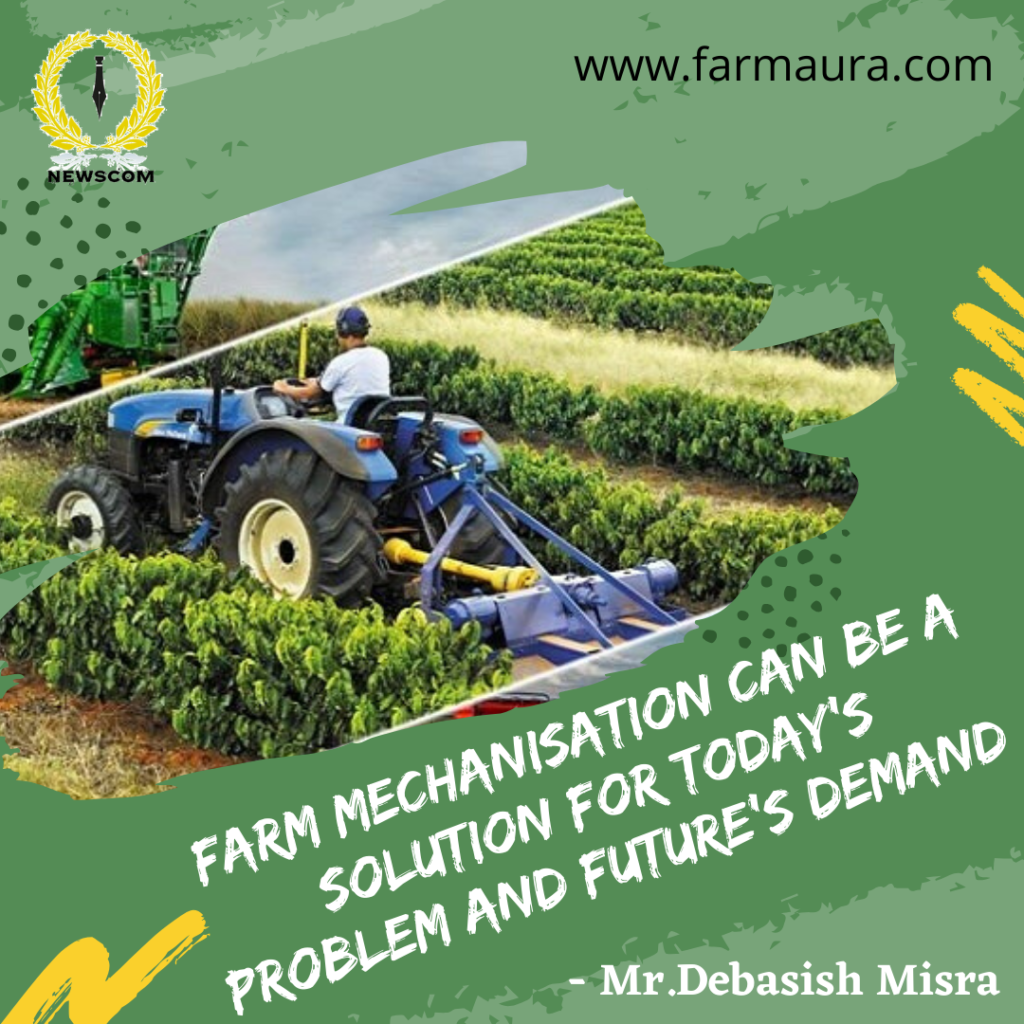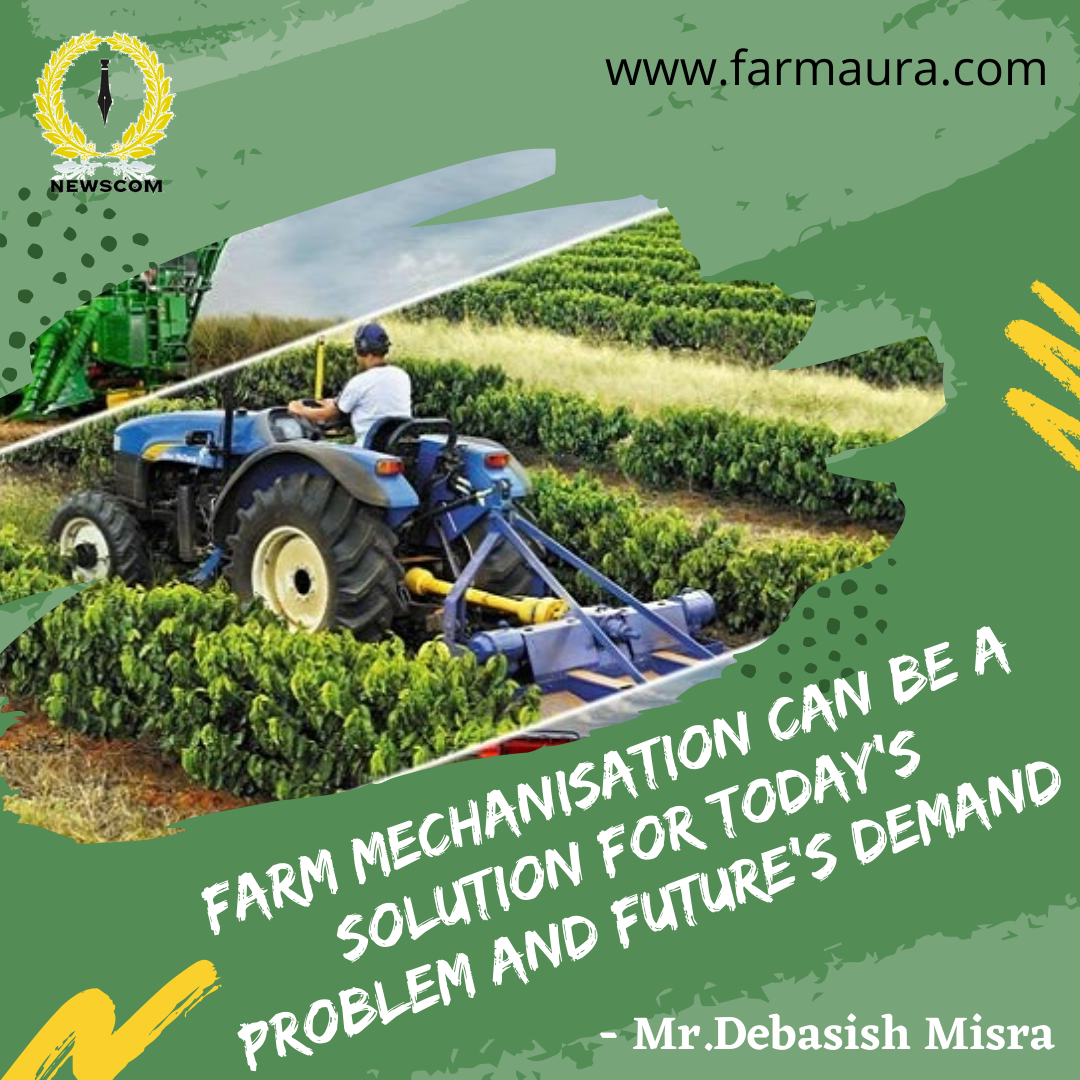
The agriculture sector attribute to around 15.9% of India’s USD 2.9 trillion economy and 49% of total employment. The structural changes in the economy have drifted the labour from agriculture to other sectors and during this covid19 pandemic, the labour market is into a drastic deficit in peak harvesting season. So, the need to make agriculture a technology driven sector with less reliance on labour is more demanding than ever to achieve higher per-unit productivity and sustainable growth.
According to FAO to meet the agricultural demand in 2050 this sector needs to increase the production of food, feed and biofuel by almost 50% compared to 2012. Now the demand is felt due to factors like population explosion, disposable income, prices and consumer preferences and apart from this other factor like feed, industrial raw material can also be considered. But with limited resources it is very much difficult to cater to the future demand for food, feed and fuel.
The solution can be in the form of a higher degree of mechanisation and investment in new technology to attain optimum input use efficiency and sustainable productivity increase.
India is also one of the largest manufacturers of equipment such as tractors, harvesters and tillers. Farm mechanisation in India is in initial stages with only 40-45% whereas in developed economics this level is 90%. Our farm equipment market is 7% of the global market with more than 80% value coming from tractors only. Domestic sale of tractor increased from 3 lakh units in FY09 to 8 lakh units in FY19 with a CAGR of 10%. Many studies have shown that Farm power availability (FPA) and agricultural productivity are positively correlated. FPA in India has also risen from 1.1 kW/ha in 1995-96 to 2.02 kW/ha in 2017-18.
Availability of farm power depends directly on the quantity of farm machinery with a higher weightage on tractors, power tillers, electric motors and diesel engines. Farm mechanisation emerges as an intervention for productivity push to this sector. Leveraging mechanisation by means of custom hiring services helps in increasing agricultural productivity as well as increase the acceptance and adoption of mechanised farming among small and marginal farmers.
Though we operate in the global market the pandemic has disrupted the worldwide supply chain and the with new buzz word, ‘vocal to local’ the manufacturing industry have to find their market locally. Rental business faced a sharp dip in this time could tie up with financial institutions to get rent to buy option. Tractor industry may see a shared platform in the near future, but the rental rates should be structured to provide equal opportunities.
In farm mechanisation providing after sales service is an important component to maintain the customer relationship but in these difficult times of surviving with social distancing technology intervention like augmented reality (AR) presents endless opportunities where a broken tractor can be attended by a local technician with guidance from experts from anywhere in the world. Technologies like artificial intelligence, automation, internet of things (IoT) can provide a platform for smart manufacturing and with data utilization can pave way for precision farming to increase productivity per unit.
Every new possibility requires a course correction for its implementation. We can start with better regulation of existing schemes like National Food Security Mission (NFSM) which provide assistance upto 50% for the cost of machinery. Rashtriya Krishi Vikas Yojana (RKVY) provide assistance for large equipment for custom hiring centres (CHCs). Sub- Mission on Agricultural mechanisation (SMAM) works on increasing reach of farm mechanisation, creating awareness through demonstration and creating hubs for hi-tech and high-value equipment.
Nearly 90% of tractor sales in our country are done through financial schemes but equal availability of this benefit to all farmers is still a question mark as it depends on the financial profile of the farmer and the back-ended subsidy support demand higher initial investment. So towards this a strong credit guarantee scheme is required for smooth flow of credit to this sector.
Apart from this working on PPP model for custom hiring centre establishment to operate as a CSR initiative for private players can be done. With a greater number of small and marginal landholdings, our R&D can focus on climate smart mechanisation along with crop and state specific mechanisation. To support and operate all these services skill upgradation of existing manpower is of utmost necessity.





We’re a gaggle of volunteers and starting a new scheme in our
community. Your web site offered us with helpful information to work on. You have done an impressive job and our
entire neighborhood shall be thankful to you.
Feel free to surf to my web site – Buy CBD